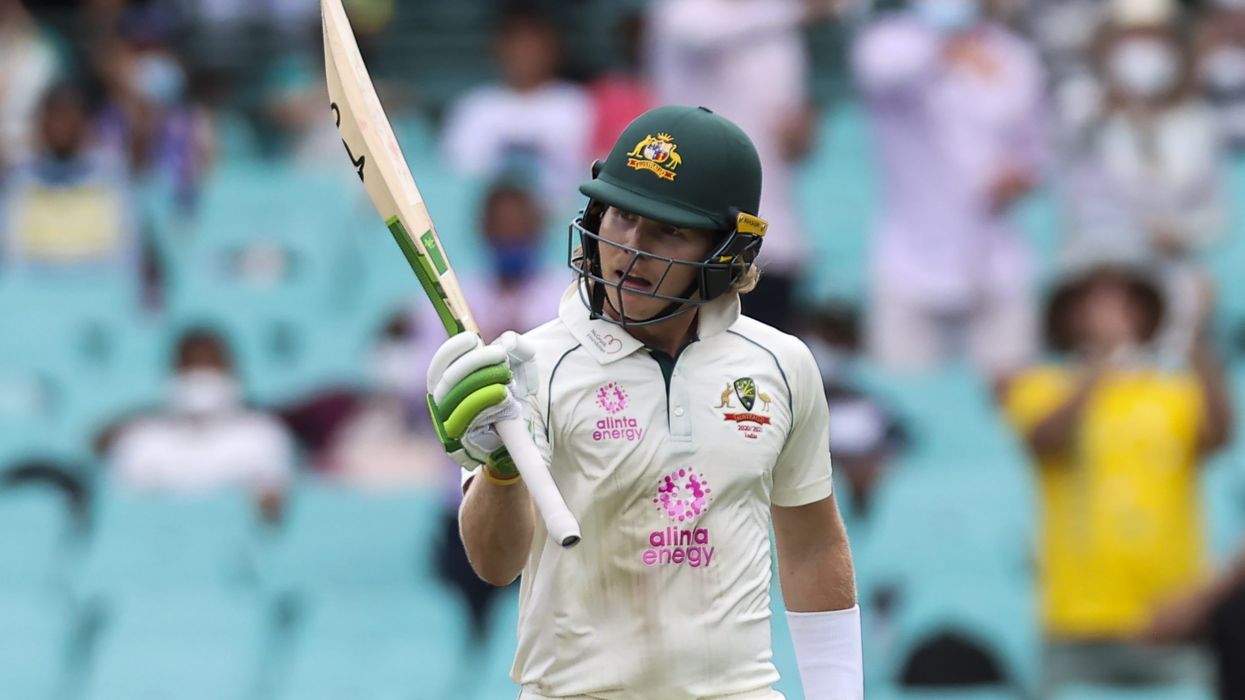Debutant Will Pucovski and Marnus Labuschagne smacked half-centuries as Australia recovered from an early setback to build a promising first innings in the rain-hit third Test against India Thursday.
Following David Warner's departure for five, the hosts recovered to 166 for two at stumps after more than three hours' play was lost due to persistent drizzle at the Sydney Cricket Ground.
Labuschagne was not out 67 while Steve Smith, who has struggled for runs this series, hit an attacking unbeaten 31. Pucovski contributed 62 in an impressive maiden Test innings.
Fellow debutant Navdeep Saini and Mohammed Siraj, in only his second Test, shared the wickets in a clash both sides are desperate to win with the four-match series level at 1-1.
After captain Tim Paine won the toss and chose to bat in front of 8,692 socially-distanced fans, just under the quarter of capacity allowed, the rain started falling 35 minutes into the opening session.
It was enough time for Siraj to grab the key wicket of Warner on his return from injury, caught by Cheteshwar Pujara to put Australia on the back foot.
But a 100-run partnership between Pucovski and Labuschagne swung the momentum back in Australia's favour before the 22-year-old fell lbw to Saini.
"It was a pretty incredible experience, it meant everything to me to be honest," said Pucovski on making his debut.
"It was a very nice batting wicket and I'm hopeful with the amount of batting that's in now and what we've got to come that we can post a really good total.
"And then with the world-class attack that we have, we can really put them under the pump and dominate the game."
The patient Labuschagne, who has been Australia's best batsman this series, survived an edge off Jasprit Bumrah on 11, which just failed to carry to slip, but was otherwise authoritative.
He brought up his ninth Test 50 with a boundary off Siraj, while Smith looked in ominous touch at the other end after failing to reach double figures in his four previous innings.
The former captain hit five boundaries in his 31 which came off 64 balls.
"Nice to spend a bit of time out there and nice to stitch in a partnership with Marnus," said Smith. "It was good to get a couple of boundaries early."
- Dropped catches -
Pucovski resumed on 14 and Labuschagne two when play finally restarted at 3pm after the lengthy rain delay.
Australia have high hopes for Pucovski, who scored two double centuries in the Sheffield Shield this season but had been sidelined with a concussion, the ninth of his short career.
India tried to unsettle him early on with short balls and he rode his luck, being dropped twice.
The first came on 26 when Ravi Ashwin enticed a thin edge, only for wicketkeeper Rishabh Pant to miss what should have been a simple catch.
Three overs later and Pant did it again.
Pucovski, on 32, got a glove to a rising Siraj ball and as Pant dived, the ball popped out of his hand. He made another grab and seemed to have caught it, but replays showed the ball hit the ground first.
He then survived a run-out opportunity after a misunderstanding with Labuschagne, but refocused to bring up his 50 with a boundary off Saini.
But Saini, in the team for the injured Umesh Yadav, finally snared his first Test wicket, trapping Pucovski to snap what was shaping as a dangerous partnership.
Veteran Warner missed the first two Tests in Adelaide and Melbourne with a groin injury and his return was highly anticipated. But he didn't last long.
He showed intent with a two off his first ball but his natural aggression quickly brought him undone, swinging at a full Siraj delivery which took at outside edge and flew to Pujara at slip.




